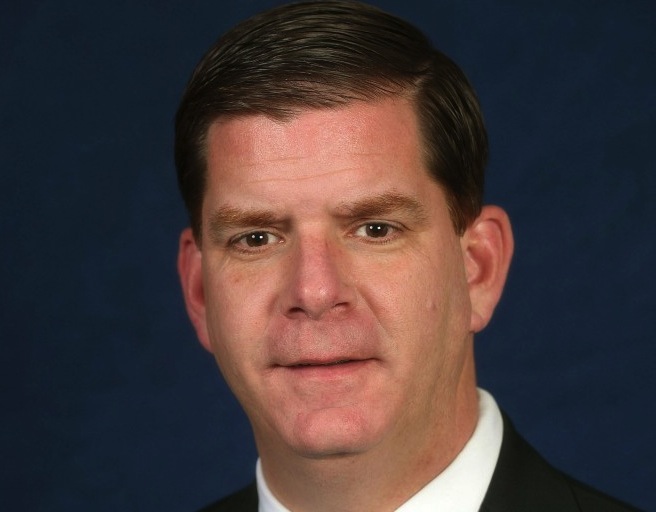
On Tuesday, Jan. 13, Mayor Marty Walsh will deliver his first State of the City address. The annual speech is intended to recall the pros and cons of the past year while outlining the mayor’s vision for the future of Boston. It’s slated to take place at Boston Symphony Hall at 6:30 p.m.
In Dec., Mayor Walsh spoke before the Greater Boston Chamber of Commerce. He mentioned that the city approved $3.7 billion in development projects on top of the $4 billion worth of projects already under construction, that his administration is toying with the idea of workforce housing with immediate MBTA access and that the city is supporting startups and innovation through tax breaks.
But there are plenty of areas where the mayor must turn his attention moving forward. From campaign promises to prospective policy changes, here are 5 things we want to hear from Mayor Walsh in his State of the City.
1. Late night bar & restaurant hours
In the summer of 2014, Mayor Walsh compiled a Late Night Task Force charged with investigate the feasibility of extending the hours of operation for bars and restaurants. Last call in Boston (2 a.m. at the latest) is early in comparison to that of other cities, and Mayor Walsh made it clear that he thinks allowing for people to get food and drink during later hours is a necessary move for retaining young, entrepreneurial talent.
He made his first move by teaming up with state Sen. Linda Dorcena Forry to file a budget amendment that would push last call as late as 3:30 a.m. To the chagrin of the mayor, the measure was rejected.
“As Mayor Walsh approaches this new legislative session and his second year as Mayor of Boston, he will continue to consider ways to include Late Night Task Force initiatives in his first state legislative agenda,” Gabrielle Farrell, spokeswoman for Mayor Walsh, told BostInno vaguely.
2. Dispersal of liquor licenses to more Boston neighborhoods
Though extending hours of operation for food and drink establishments has stalled, the city was able to procure 150 new liquor licenses to be dispersed over a three year period.
The catch is that they need to be awarded in neighborhoods that are lacking in businesses serving alcohol. Slowly but surely places in communities like Mattapan, Dorhcester and Roxbury are receiving licensure. But in order for them to compete with the likes of the Back Bay, which boasts over 140 licenses, and to fulfill a promise to streamline city permitting and small business licensing, more expedition is needed from the mayor. Comparatively, Mattapan has just two.
Related: Watch Mayor Tom Menino’s inaugural State of the City address from 1994
3. Late-Night MBTA service
The City of Boston and Commonwealth of Massachusetts launched late-night MBTA service in April, extending weekend subway and bus hours from 12:30 a.m. on Saturdays and Sundays to 3 a.m.
The MBTA and MassDOT have been forthcoming with ridership data, indicating that as of Dec. 28, roughly 820,000 rides were made between those hours since the pilot began.
One cause for concern was how if the data would be skewed during college and university hours. The city swells and shrinks when classes commence and are adjourned. Given that the pilot program has been privy to summer and winter vacations, it’d be great to hear if there will be any potential city initiatives surrounding what appears to be a successful program. Perhaps a bigger push for late night bar and restaurant hours.
4. Thoughts on two free years of community college
President Obama recently unveiled his proposal to offer two free years of community college education to “anyone who’s willing to work for it.”
Boston is a renowned center for higher-education and given Mayor Walsh’s Digital District, an initiative aimed at making all aspects of every grade level more tech-savvy, it’d be great for the mayor to weigh in on President Obama’s plan. Though local community colleges are overseen by the state, City Hall could partner with Beacon Hill as the mayor has tried to do on several of the late-night issues. Especially since the likes of Roxbury Community College and Bunker Hill Community College fall within city limits.
5. Olympics transparency
Though the 2024 Summer Olympic host city won’t be determined until 2017, Boston was tapped as the United States Olympic Committee’s choice. More than any other U.S. candidate, Boston has witnessed substantial outcry from the public opposing the potential bid.
Mayor Walsh has scheduled 9 community meetings throughout 2015 to solicit more public input, but he’s ruled out the idea for a referendum.
“We expect Mayor Walsh to hear serious resistance at these meetings,” Aaron Leibowitz, spokesperson for No Boston Olympics, told BostInno. “If the details are released and people are not on board, then the City of Boston should certainly reconsider. But we also know that the decision to wait until after Boston had won the bid to begin any sort of public dialogue was deliberate. We don’t expect this to be easy.”

